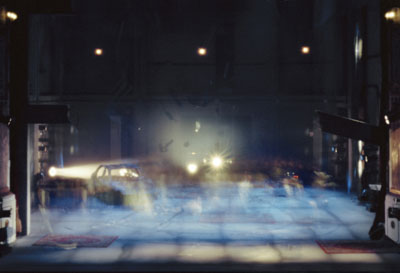
by William Shakespeare
directed by Alexander Zeldin
Stage by George Tsypin
Teatro Mercadante, Napoli 2010
from the series OPERA OBSCURA DI NAPOLI © Karen Stuke
Karen Stuke »
Opera obscura di Napoli
Exhibition: 9 Sep – 7 Oct 2011
Primo Piano Home Photo Gallery
Via Foria, 118
80137 Napoli

PrimoPiano
Via Foria, 118
80137 Napoli
+39 081-19560649
info@primopianonapoli.com
www.primopianonapoli.com
Wed-Fri 16-20 +
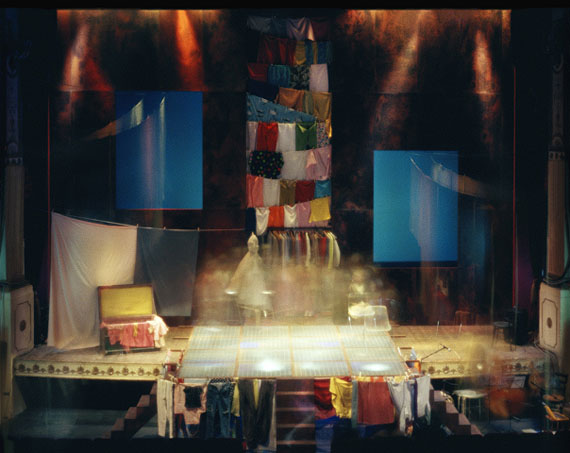
by Esteban Antonio Skármeta
directed by Giovanni Scacchetti
Teatro Mercadante, Napoli 2010
from the series OPERA OBSCURA DI NAPOLI © Karen Stuke
Opera obscura di Napoli
Karen Stuke
Exhibitions/Ausstellungen
- 15 October 2011
PAN Palazzo delle Arti di Napoli
Via dei Mille 60, 80121 Napoli
- 7 October 2011
Galleria PrimoPiano
Via Foria 118, Napoli
Book Launch / Buch-Präsentation
7 November 2011 19:00
Loris
Gartenstr. 114, 10115 Berlin
photographer: Karen Stuke
curated by Antonio Maiorino
in collaboration with Napoli Teatro Festival Italia and the Goethe Institut
In 2010, the Berlin based photographer Karen Stuke, was invited by the Napoli Teatro Festival Italia and the Galleria PrimoPiano to participate in an artistic project aimed at highlighting the close link which exists between Naples, its hinterland and the theatre.
For that project, Stuke created a series of photographs portraying the essence of the most signi cant performances staged in different venues in the territory during the Napoli Teatro Festival Italia. Her work resulted in a series of photographs of eight different performances held during the 2010 edition of the Festival and which will now be exhibited in the PAN | Palazzo delle Arti Napoli from the 8 September until the 15 October. Stuke used a very particular technique which she has experimented previously to immortalise some of the most important operatic and theatrical performances world-wide. By using a pin-hole camera, the artist produces indistinct images but characterised by a deep eld of vision, thus giving the spectator a highly innovative visualization of the performances. Karen Stuke’s technique consists in recording on a single photographic plate a progression of various stages of the performance from the opening to the closing curtain; the progressive transformations of lighting, scenes and the movements of the actors are all captured and immortalised as a nal, single image which could be described as “ectoplasmic” or animated. The performance is presented in a series of superimposed images giving contemporaneously both a single and a total vision where some individual elements are indistinguishable but represent the performance in its totality: light, space, movement all appear together in a transient, eeting portrait. This is photography as a veritable work of art, able to depict the soul of the theatrical performance. In parallel with the PAN exhibition, the Galleria PrimoPiano will also host an exhibition dedicated to other works of Karen Stuke; a series of photographs taken over the past few years in some of the most important European theatres.
Karen Stuke, Fotografin aus Berlin, nahm als Gast des Napoli Teatro Festival Italia sowie der Galerie PrimoPiano 2010 an einem künstlerischen Projekt teil, das darauf ausgerichtet war, die bestehende enge Verbindung zwischen Neapel und dem Theater hervorzuheben. Entstanden sind Fotografien, die den Geist der bedeutendsten Inszenierungen des dritten Napoli Teatro Festivals bannen.
Karen Stuke griff dabei auf eine Technik zurück, die sie bereits seit Jahren nutzt, um die weltweit wichtigsten Theater- und Operninszenierungen fotografisch darzustellen. Durch den Gebrauch einer Lochkamera kreiert die Künstlerin wenig scharfe, aber durch Tiefenschärfe charakterisierte Bilder und bietet auf diese Weise dem Beobachter verschiedene Perspektiven. Mittels dieser Technik bannt Karen Stuke auf einer einzigen Fotoplatte den Verlauf einer vollständigen Aufführung, vom Moment, in dem sich der Vorhang hebt bis zur letzten Szene.
Parallel zur Ausstellung im PAN findet in der Galerie Primo Piano eine Einzelausstellung der Fotografin statt, mit einer Auswahl ihrer an den wichtigsten europäischen Theatern realisierten Arbeiten der letzten Jahre.
Die Ausstellung wird kuratiert von Antonio Maiorino (Galerie Primo Piano), in Zusammenarbeit mit dem Napoli Teatro Festival Italia und dem Goethe-Institut Neapel.
Zu den Ausstellungen erscheint ein Katalog mit Texten von Antonio Maiorino und Dr. Matthias Harder.
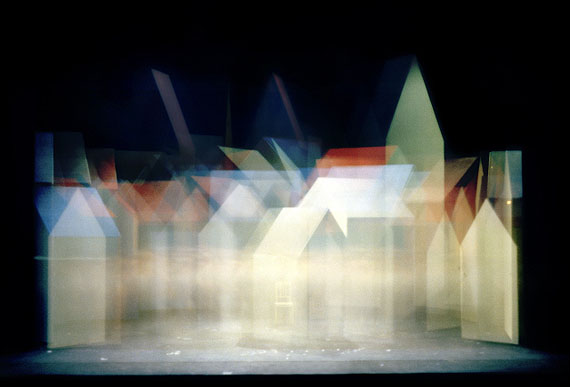
by Richard Wagner
Komische Oper Berlin 2010
directed by Andreas Homoki
Stage by Frank Philipp Schlößmann
from the series OPERA OBSCURA © Karen Stuke
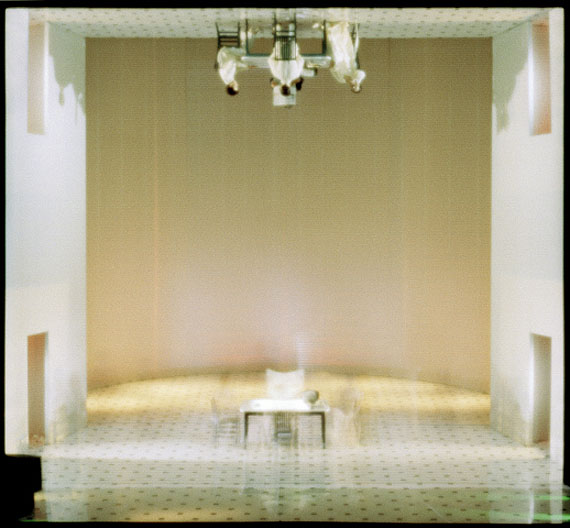
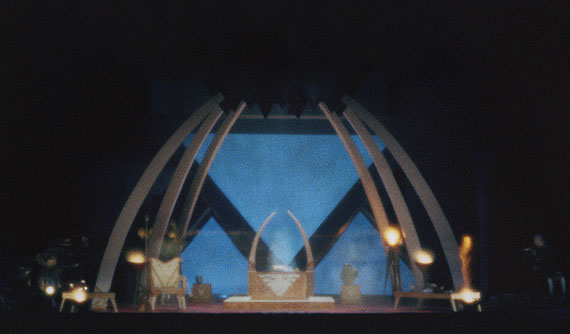
Laurent Gaudé
directed by Michel Didym
Maschio Angioino, Napoli 2010
from the series OPERA OBSCURA DI NAPOLI © Karen Stuke